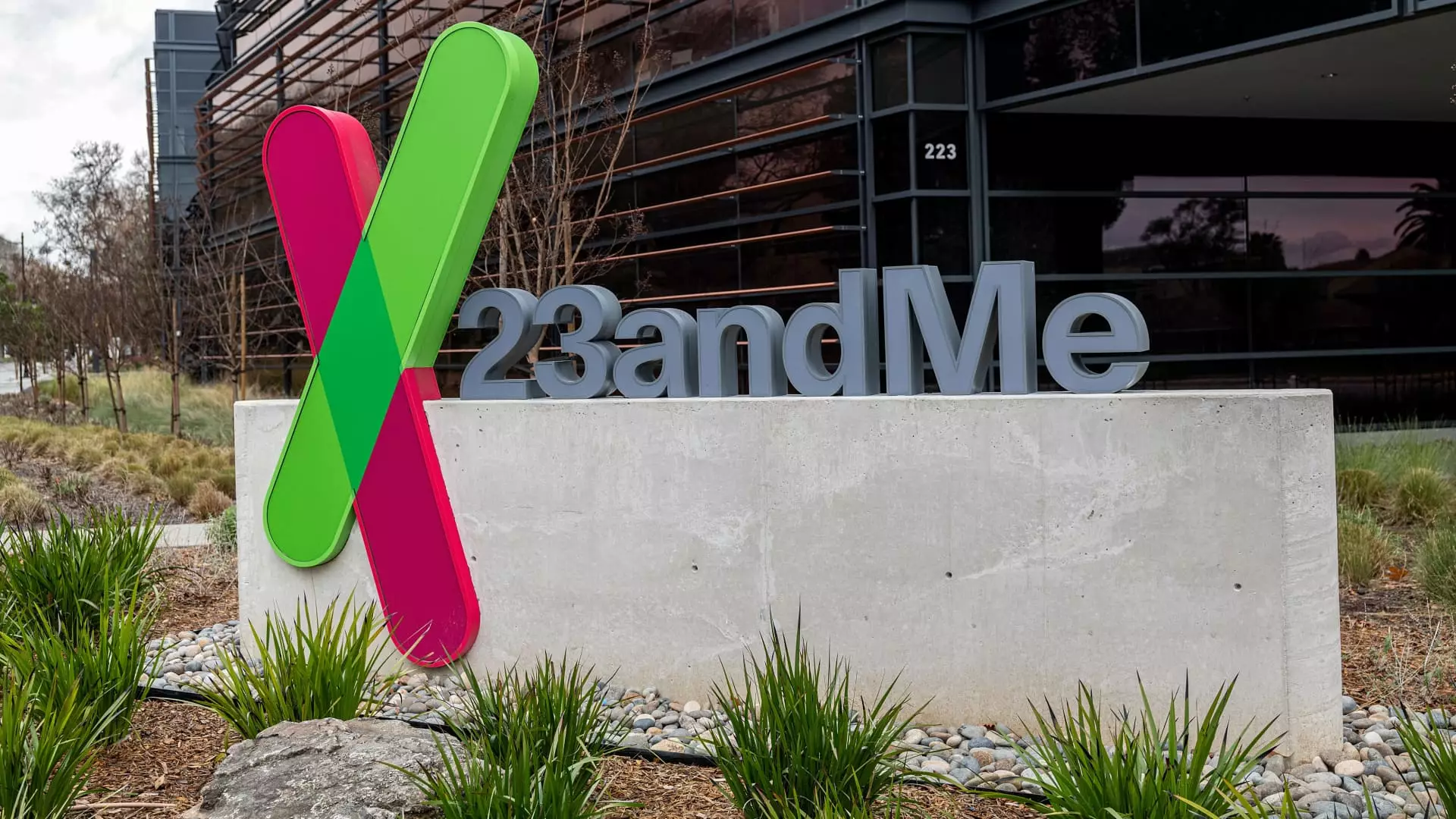In an era where personal data has become one of the most coveted resources, 23andMe’s bankruptcy filing under Chapter 11 comes as a stark reminder of the perils that accompany genetic data sharing. By voluntarily testing their DNA, consumers have been lured into a landscape riddled with risks, from identity theft to insurance scams. The vast genetic database that 23andMe has accumulated may soon pass into the hands of a new owner, raising serious questions about how individuals’ unique genetic information will be managed and protected.
The genetic material obtained through at-home testing kits is unlike any consumer data because it is irrevocably tied to each individual. The uniqueness of DNA means that its anonymization is unattainable; even if names and personal identifiers are removed, the inherent characteristics remain traceable back to the individual. As the National Human Genome Research Institute underscores, the implications of this reality are profound. The collapse of a company like 23andMe due to financial distress can lead to catastrophic consequences, especially if data enters the hands of malicious actors.
Privacy Concerns Amplified
The concerns surrounding privacy aren’t mere theoretical musings. Earlier this year, a hacking incident exposed the information of nearly 7 million users, shaking customer trust to its core. It’s not just the loss of financial stability that poses a threat; the erosion of privacy can lead to tangible risks in people’s personal lives. Such breaches reinforce the notion that customers must scrutinize their choices regarding data sharing closely. California Attorney General Rob Bonta’s consumer alert decision to advise customers to consider deleting their genetic data signals that we must not overlook the vulnerabilities accompanying DNA testing services.
23andMe has responded to critics and consumer apprehensions by stating its commitment to rigorous data protection during the bankruptcy process. While according to them, management and storage of data will remain unchanged, skepticism is a natural response among concerned users. After all, with such sensitive data at stake, one should expect definitive guarantees rather than mere assurances.
Taking Control of Your Data
Amidst this uncertainty, consumers need to be proactive in safeguarding their own information. Individuals should understand that they have the right to delete their genetic data under California law, giving them more control over what remains accessible. The deletion process is detailed on 23andMe’s website, providing a straightforward pathway to removing personal information and samples from the company’s database. However, users must be aware of the gravity of the decision. Permanently deleting one’s data means relinquishing access to any insights the genetic testing might offer in the future.
The following steps highlight how individuals can navigate the deletion process: starting with logging in to their 23andMe account, selecting “Settings” from the profile menu, and finally executing the deletion through a series of confirmations. Though this sounds simple, it carries significant weight for anyone who has engaged with genetic testing services.
Seeking Alternatives and Exercising Vigilance
As consumers reassess their relationship with genetic data, now is an opportune time to explore alternatives. Many privacy-centered genetic testing companies are emerging, emphasizing secure data practices and transparency. The importance of evaluating a company’s privacy policy before sharing personal information cannot be overstated—especially in a post-bankruptcy landscape. Consumers must demand more than the token “we care about your privacy” statements; they should look for actionable commitments that demonstrate genuine concern for data protection.
In addition to being discerning about whom to trust with genetic data, individuals should adopt a comprehensive approach to their digital footprint. Regularly monitoring online information, scrutinizing data-sharing practices, and employing identity protection services are critical steps everyone should take. By staying informed and proactive, consumers can fortify their defenses against the potential fallout from the vulnerabilities in genetic data sharing.
Furthermore, as Adrianus Warmenhoven from NordVPN aptly notes, revoking unnecessary permissions and shutting down unused accounts are simple yet effective practices that can contribute to enhancing one’s security and privacy. The need for vigilance cannot be overstated, as the intersection of technology and personal data poses ongoing threats.
Approaching one’s genetic data with caution and an informed mindset is undoubtedly the path forward as we navigate this evolving digital landscape.


Leave a Reply
You must be logged in to post a comment.